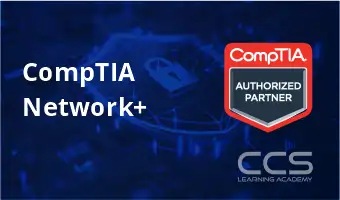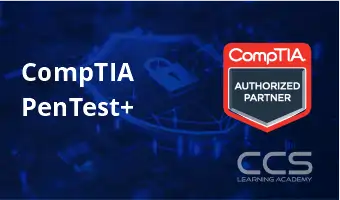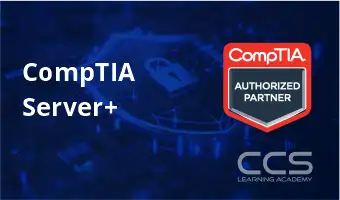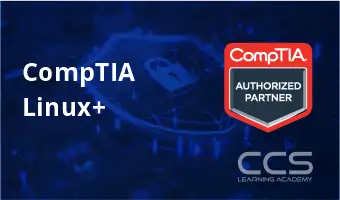Filter by Topic
Filter by Vendor
70-243: Mastering System Center 2012 Configuration Manager eLearning
Course Description: The 70-243: Mastering System Center 2012 Configuration Manager …
What you'll learn
Describe the System Center 2012 Configuration Manager infrastructure and describe typical deployment scenarios.
Plan and deploy a single primary site.
Plan and configure administrative roles.
Plan and deploy a multiple-site hierarchy including the central administration site, primary sites, and secondary sites.
Describe replication and data types, and monitor the replication of data throughout the hierarchy.
Use various methods to plan and deploy System Center 2012 Configuration Manager clients.
Perform maintenance tasks and monitor site systems.
Describe the System Center 2012 Configuration Manager feature set.
Discover and organize resources.
Manage the Configuration Manager client.
Manage inventory and software metering.
Query and report data.
Manage software deployments by using packages and programs.
Create and deploy applications.
Manage application deployment.
Deploy and manage software updates.
Implement System Center 2012 Endpoint Protection.
Deploy operating systems by using System Center 2012 Configuration Manager.
Manage compliance settings on devices.
Manage mobile devices.
Configure Wake On LAN, Power Management, and Remote Control.
Perform migration of objects from Configuration Manager 2007 to Configuration Manager 2012.
Understand appropriate command-Line, PowerShell and applicable management shell commands
CompTIA Network+
Course Description This instructor-led, online CompTIA Network+ (N10-008) certification course …
What you'll learn
Explain the OSI and TCP/IP Models.
Explain the properties of network traffic.
Install and configure switched networks.
Configure IP networks.
Install and configure routed networks.
Configure and monitor ports and protocols.
Explain network application and storage issues.
Monitor and troubleshoot networks.
Explain network attacks and mitigations.
Install and configure security devices.
Explain authentication and access controls.
Deploy and troubleshoot cabling solutions.
Implement and troubleshoot wireless technologies.
Compare and contrast WAN technologies.
Use remote access methods.
Identify site policies and best practices.
CompTIA Advanced Security Practitioner (CASP+)
Course Description Learn advanced security administration tools and techniques while …
What you'll learn
Support IT governance in the enterprise with an emphasis on managing risk
Leverage collaboration tools and technology to support enterprise security
Use research and analysis to secure the enterprise
Integrate advanced authentication and authorization techniques
Implement cryptographic techniques
Implement security controls for hosts
Implement security controls for mobile devices
Implement network security
Implement security in the systems and software development lifecycle
Integrate hosts, storage, networks, applications, virtual environments, and cloud technologies in a secure enterprise architecture
Conduct security assessments
Respond to and recover from security incidents
CompTIA PenTest+
Course Description Security remains one of the hottest topics in …
What you'll learn
Plan and scope penetration tests.
Conduct passive reconnaissance.
Perform non-technical tests to gather information.
Conduct active reconnaissance.
Analyze vulnerabilities.
Penetrate networks.
Exploit host-based vulnerabilities.
Test applications.
Complete post-exploit tasks.
Analyze and report pen test results.
CompTIA Server+
Course Description The CompTIA Server+ (Exam SK0-005) course builds on …
What you'll learn
Manage server hardware.
Install server hardware and operating systems.
Configure networking hardware and protocols.
Create a virtual server environment.
Perform basic server configuration tasks.
Administer servers.
Implement server storage solutions.
Secure the server.
Plan and test disaster recovery.
Troubleshoot server issues.
CompTIA Linux+
For many years, Linux has dominated the server install base …
What you'll learn
Perform basic Linux tasks.
Manage users and groups.
Manage permissions and ownership.
Manage storage.
Manage files and directories.
Manage kernel modules.
Manage the Linux boot process.
Manage system components.
Manage devices.
Manage networking.
Manage packages and software.
Secure Linux systems.
Write and execute Bash shell scripts.
Automate tasks.
Plan and perform a Linux installation.
What you'll learn
Explain the drivers responsible for the emergence of DevOps.
Define and discuss the key concepts and principles of DevOps.
List and explain the business benefits of DevOps and continuous delivery.
Describe the Service Delivery process.
Explain the concepts of test automation, infrastructure automation, and build and deployment automation.
Describe how DevOps relates to Lean and Agile methodologies.
Summarize case studies of IT organizations that are making the transformation to Adaptive IT and DevOps models.
List the most common and popular DevOps tools.
Discuss the critical success factors for DevOps implementation.
PMP – Project Management Professional
Course Description Project Management Professional (PMP)® Certification is fast becoming …
What you'll learn
To understand the various project components in detail and learn how to effectively integrate them to ensure successful project outcomes
To acquire resource management skills
To learn how to apply the Work Breakdown Structure (WBS)
To know how to uncover the risks associated with a project
To demonstrate project execution and project control techniques required for project success
To carry out project closure activities on time and get formal sign-off on projects
Prepare to take the PMP exam
Become familiar with PMBOK® Guide terms, definitions, and processes
Master test-taking techniques
Learn styles and types of questions found on the PMP exam
PMBOK® Guide’s five process groups, ten knowledge areas, and the area of professional and social responsibility










